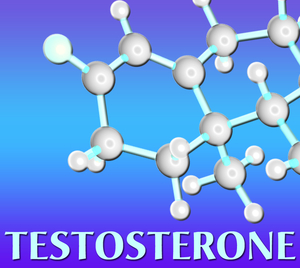Introduction to Growth Hormone Deficiency
Growth hormone deficiency (GHD) is a medical condition characterized by the inadequate secretion of growth hormone from the pituitary gland. This deficiency can lead to short stature and delayed growth in children, significantly affecting their physical development and overall quality of life. In the United States, GHD affects a notable number of pediatric patients, with a higher prevalence observed among males. Addressing this condition effectively is crucial for ensuring normal growth and development in affected children.
Understanding Genotropin
Genotropin, a recombinant human growth hormone, has emerged as a pivotal treatment option for children diagnosed with GHD. Produced through advanced biotechnological processes, Genotropin mimics the natural growth hormone produced by the human body, thereby facilitating growth and development in children who lack sufficient levels of this essential hormone. The drug is administered via subcutaneous injection, typically on a daily basis, to ensure consistent levels of growth hormone in the bloodstream.
Clinical Efficacy of Genotropin
Numerous clinical studies have demonstrated the efficacy of Genotropin in promoting growth in children with GHD. Research indicates that treatment with Genotropin can lead to significant improvements in height velocity, with many patients achieving growth rates that align more closely with their peers. For American males, who may face additional societal pressures related to physical stature, the impact of Genotropin can be particularly transformative, enhancing not only their physical growth but also their psychological well-being.
Safety Profile and Monitoring
While Genotropin has proven to be effective, its use is accompanied by a need for careful monitoring to ensure safety and optimize outcomes. Common side effects may include injection site reactions, headaches, and, in some cases, fluid retention. More serious, albeit rare, side effects can include increased intracranial pressure and slipped capital femoral epiphysis. Regular follow-up with healthcare providers is essential to monitor growth progress and manage any potential adverse effects. Additionally, periodic assessments of thyroid function and glucose metabolism are recommended to mitigate the risk of associated complications.
Long-Term Outcomes and Considerations
The long-term use of Genotropin in pediatric patients with GHD has been associated with sustained improvements in final adult height. Studies have shown that early initiation of treatment can maximize the benefits, underscoring the importance of timely diagnosis and intervention. For American males, achieving a height that aligns with societal norms can have profound implications for self-esteem and social integration. However, it is crucial to balance the benefits of Genotropin with the potential risks and to tailor treatment plans to the individual needs of each patient.
Psychosocial Impact and Support
Beyond the physical aspects, the psychosocial impact of GHD and its treatment cannot be overlooked. Children with GHD may experience challenges related to self-image and peer interactions, which can be mitigated through comprehensive support systems. Counseling and support groups can play a vital role in helping these children and their families navigate the emotional and social aspects of the condition. For American males, fostering a supportive environment that emphasizes holistic development is essential for their overall well-being.
Conclusion
Genotropin represents a cornerstone in the management of pediatric growth hormone deficiency, offering hope and tangible benefits to affected children, particularly American males. By facilitating normal growth and development, Genotropin not only addresses the physical manifestations of GHD but also contributes to the psychological and social well-being of patients. As research continues to evolve, the role of Genotropin in pediatric endocrinology remains a testament to the advancements in medical science and the ongoing commitment to improving the lives of children with GHD.
Contact Us Today For A Free Consultation

- Unlocking the Potential of Genotropin for Metabolic Health in American Men [Last Updated On: February 20th, 2025] [Originally Added On: February 20th, 2025]
- Unveiling the Potential of Genotropin: A Comprehensive Review of Clinical Trials and Outcomes [Last Updated On: March 12th, 2025] [Originally Added On: March 12th, 2025]
- Genotropin's Impact on Lipid Profiles in Men with Growth Hormone Deficiency [Last Updated On: March 14th, 2025] [Originally Added On: March 14th, 2025]
- Exploring the Efficacy of Genotropin in Managing Idiopathic Short Stature in American Males [Last Updated On: March 15th, 2025] [Originally Added On: March 15th, 2025]
- Unveiling the Impact of Genotropin on Growth Hormone Deficiency and Sleep Disorders in American Males [Last Updated On: March 16th, 2025] [Originally Added On: March 16th, 2025]
- Exploring the Effects of Genotropin on Lung Function in American Males with Growth Hormone Deficiency [Last Updated On: March 16th, 2025] [Originally Added On: March 16th, 2025]
- Exploring the Role of Genotropin in Treating Growth Hormone Deficiency and Osteoporosis in American Males [Last Updated On: March 16th, 2025] [Originally Added On: March 16th, 2025]
- Exploring the Impact of Genotropin on Exercise Capacity in Growth Hormone Deficient Men [Last Updated On: March 16th, 2025] [Originally Added On: March 16th, 2025]
- Exploring the Psychological Landscape of Genotropin Therapy: Overcoming Barriers for American Males [Last Updated On: March 16th, 2025] [Originally Added On: March 16th, 2025]
- Exploring the Impact of Genotropin on Bladder Function in Men with Growth Hormone Deficiency [Last Updated On: March 16th, 2025] [Originally Added On: March 16th, 2025]
- Genotropin in American Males: Pharmacokinetics, Pharmacodynamics, and Clinical Implications [Last Updated On: March 18th, 2025] [Originally Added On: March 18th, 2025]
- Genotropin's Cognitive Benefits in Growth Hormone Deficient American Males: A Review [Last Updated On: March 18th, 2025] [Originally Added On: March 18th, 2025]
- Genotropin's Impact on Growth Disorders in American Males: Efficacy and Applications [Last Updated On: March 18th, 2025] [Originally Added On: March 18th, 2025]
- Genotropin's Role in Enhancing Quality of Life for American Males with Short Bowel Syndrome [Last Updated On: March 19th, 2025] [Originally Added On: March 19th, 2025]
- Genotropin Therapy Transition for American Males: From Pediatric to Adult Care [Last Updated On: March 19th, 2025] [Originally Added On: March 19th, 2025]
- Debunking Myths: Understanding Genotropin Therapy for American Males [Last Updated On: March 20th, 2025] [Originally Added On: March 20th, 2025]
- Genotropin Therapy for Growth Hormone Deficiency in Elderly Men: Benefits and Management [Last Updated On: March 20th, 2025] [Originally Added On: March 20th, 2025]
- Genotropin's Impact on Cardiovascular Health in American Males with Growth Hormone Deficiency [Last Updated On: March 20th, 2025] [Originally Added On: March 20th, 2025]
- Genotropin Therapy: Enhancing Growth and Quality of Life in American Males [Last Updated On: March 21st, 2025] [Originally Added On: March 21st, 2025]
- Genotropin: Revolutionizing Hypopituitarism Treatment for American Males [Last Updated On: March 21st, 2025] [Originally Added On: March 21st, 2025]
- Genotropin: Enhancing Growth in SGA Children - Mechanism, Efficacy, and Safety [Last Updated On: March 21st, 2025] [Originally Added On: March 21st, 2025]
- Strategies to Enhance Genotropin Therapy Compliance in American Males [Last Updated On: March 21st, 2025] [Originally Added On: March 21st, 2025]
- Genotropin Therapy for American Males: Benefits, Side Effects, and Management Strategies [Last Updated On: March 21st, 2025] [Originally Added On: March 21st, 2025]
- Genotropin's Impact on Body Composition in American Males with Growth Hormone Deficiency [Last Updated On: March 21st, 2025] [Originally Added On: March 21st, 2025]
- Genotropin Therapy Enhances Quality of Life in American Males with GHD [Last Updated On: March 22nd, 2025] [Originally Added On: March 22nd, 2025]
- Genotropin's Impact on Turner Syndrome: Enhancing Life for American Males [Last Updated On: March 23rd, 2025] [Originally Added On: March 23rd, 2025]
- Genotropin: A Key Treatment for Growth Hormone Deficiency Due to Craniopharyngioma [Last Updated On: March 24th, 2025] [Originally Added On: March 24th, 2025]
- Genotropin's Impact on Reproductive Health in American Males with Growth Hormone Deficiency [Last Updated On: March 24th, 2025] [Originally Added On: March 24th, 2025]
- Genotropin's Efficacy in Managing GHD and Diabetes in American Males [Last Updated On: March 24th, 2025] [Originally Added On: March 24th, 2025]
- Genotropin: Cost-Effective GHD Treatment for American Males [Last Updated On: March 24th, 2025] [Originally Added On: March 24th, 2025]
- Genotropin: Enhancing Life for American Males Post-Radiation GHD Treatment [Last Updated On: March 24th, 2025] [Originally Added On: March 24th, 2025]
- Genotropin's Role in Treating Growth Hormone Deficiency in Childhood Cancer Survivors [Last Updated On: March 24th, 2025] [Originally Added On: March 24th, 2025]
- Genotropin Enhances Immune Function in American Men with Growth Hormone Deficiency [Last Updated On: March 24th, 2025] [Originally Added On: March 24th, 2025]
- Genotropin: Enhancing Quality of Life in HIV-Positive Males with Growth Hormone Deficiency [Last Updated On: March 24th, 2025] [Originally Added On: March 24th, 2025]
- Genotropin's Impact on Hearing in American Males with Growth Hormone Deficiency [Last Updated On: March 25th, 2025] [Originally Added On: March 25th, 2025]
- Genotropin: Treating Growth Hormone Deficiency in American Males with Pituitary Tumors [Last Updated On: March 25th, 2025] [Originally Added On: March 25th, 2025]
- Genotropin's Impact on Dental Health in American Males with Growth Hormone Deficiency [Last Updated On: March 25th, 2025] [Originally Added On: March 25th, 2025]
- Genotropin Enhances Exercise Capacity in American Men with Growth Hormone Deficiency [Last Updated On: March 25th, 2025] [Originally Added On: March 25th, 2025]
- Genotropin's Impact on Growth Hormone Deficiency in American Males: Benefits and Considerations [Last Updated On: March 25th, 2025] [Originally Added On: March 25th, 2025]
- Genotropin Enhances Skin Health in American Males with Growth Hormone Deficiency [Last Updated On: March 25th, 2025] [Originally Added On: March 25th, 2025]
- Genotropin Therapy: Enhancing Growth in American Boys with Hormone Deficiency [Last Updated On: March 25th, 2025] [Originally Added On: March 25th, 2025]
- Genotropin Therapy for American Males: Nutritional Strategies for Optimal Growth [Last Updated On: March 26th, 2025] [Originally Added On: March 26th, 2025]
- Genotropin: Treating Growth Hormone Deficiency in American Males Post-TBI [Last Updated On: March 26th, 2025] [Originally Added On: March 26th, 2025]
- Personalizing Genotropin Therapy for American Males with Growth Hormone Deficiency [Last Updated On: March 26th, 2025] [Originally Added On: March 26th, 2025]
- Managing Growth Hormone Deficiency Transition with Genotropin in American Males [Last Updated On: March 26th, 2025] [Originally Added On: March 26th, 2025]
- Genotropin's Impact on Hair Growth in American Men with Growth Hormone Deficiency [Last Updated On: March 27th, 2025] [Originally Added On: March 27th, 2025]
- Genotropin Therapy for Growth Hormone Deficiency in American Males with Sickle Cell Disease [Last Updated On: March 27th, 2025] [Originally Added On: March 27th, 2025]
- Genotropin Therapy for American Males with Growth Hormone Deficiency and Epilepsy [Last Updated On: March 27th, 2025] [Originally Added On: March 27th, 2025]
- Genotropin: Enhancing Growth and Life Quality in American Males with GHD and ADHD [Last Updated On: March 27th, 2025] [Originally Added On: March 27th, 2025]
- Strategies to Boost Adherence to Genotropin Therapy in American Adolescent Males [Last Updated On: March 27th, 2025] [Originally Added On: March 27th, 2025]
- Genotropin Enhances Sleep Quality in American Men with Growth Hormone Deficiency [Last Updated On: March 27th, 2025] [Originally Added On: March 27th, 2025]
- Genotropin Therapy in American Males: Long-Term Benefits and Essential Follow-Up Care [Last Updated On: March 27th, 2025] [Originally Added On: March 27th, 2025]
- Genotropin's Impact on Emotional Well-Being in Growth Hormone Deficient American Boys [Last Updated On: March 27th, 2025] [Originally Added On: March 27th, 2025]
- Genotropin Improves Vision in American Men with Growth Hormone Deficiency: Clinical Insights [Last Updated On: March 27th, 2025] [Originally Added On: March 27th, 2025]
- Genotropin's Impact on Growth Hormone Deficiency in American Males with Cystic Fibrosis [Last Updated On: March 28th, 2025] [Originally Added On: March 28th, 2025]
- Genotropin's Efficacy in Treating GHD in American Males with Rheumatoid Arthritis [Last Updated On: March 28th, 2025] [Originally Added On: March 28th, 2025]
- Genotropin's Impact on Growth Hormone Deficiency in American Males with Down Syndrome [Last Updated On: March 28th, 2025] [Originally Added On: March 28th, 2025]
- Genotropin: Managing Growth Hormone Deficiency and Asthma in American Males [Last Updated On: March 28th, 2025] [Originally Added On: March 28th, 2025]
- Genotropin's Impact on Kidney Function in American Males with Growth Hormone Deficiency [Last Updated On: March 28th, 2025] [Originally Added On: March 28th, 2025]
- Genotropin's Role in Treating GHD in American Males with ASD: Efficacy and Considerations [Last Updated On: March 28th, 2025] [Originally Added On: March 28th, 2025]
- Overcoming Psychological Barriers to Genotropin Therapy in American Males [Last Updated On: March 30th, 2025] [Originally Added On: March 30th, 2025]
- Genotropin Therapy for Growth Hormone Deficiency in American Males with Thyroid Disorders [Last Updated On: April 1st, 2025] [Originally Added On: April 1st, 2025]
- Genotropin's Role in Managing GHD and CFS in American Males: Efficacy and Implications [Last Updated On: April 1st, 2025] [Originally Added On: April 1st, 2025]
- Genotropin: A Promising Treatment for Growth Hormone Deficiency in Obese American Males [Last Updated On: April 1st, 2025] [Originally Added On: April 1st, 2025]
- Genotropin Therapy: Managing Growth Hormone Deficiency in American Males [Last Updated On: April 4th, 2025] [Originally Added On: April 4th, 2025]
- Genotropin's Efficacy in Treating GHD in Fibromyalgia Patients: A Comprehensive Review [Last Updated On: April 5th, 2025] [Originally Added On: April 5th, 2025]
- Genotropin Enhances Lung Function in Growth Hormone Deficient American Males: A Study [Last Updated On: April 6th, 2025] [Originally Added On: April 6th, 2025]
- Enhancing Genotropin Therapy Outcomes Through Effective Communication Strategies for American Males [Last Updated On: April 9th, 2025] [Originally Added On: April 9th, 2025]
- Genotropin's Impact on Liver Function in American Males with Growth Hormone Deficiency [Last Updated On: April 9th, 2025] [Originally Added On: April 9th, 2025]
- Genotropin's Role in Managing Growth Hormone Deficiency in American Males with MS [Last Updated On: April 9th, 2025] [Originally Added On: April 9th, 2025]
- Genotropin Therapy for GHD in American Males: Ethical Considerations and Responsibilities [Last Updated On: April 9th, 2025] [Originally Added On: April 9th, 2025]
- Genotropin: A Dual Therapy for GHD and Osteoporosis in American Males [Last Updated On: April 10th, 2025] [Originally Added On: April 10th, 2025]
- Genotropin's Impact on Joint Health in American Men with Growth Hormone Deficiency [Last Updated On: April 10th, 2025] [Originally Added On: April 10th, 2025]
- Genotropin's Positive Impact on Digestive Health in American Males with GHD [Last Updated On: April 11th, 2025] [Originally Added On: April 11th, 2025]
- Navigating Cultural Barriers to Genotropin Therapy for American Males [Last Updated On: April 11th, 2025] [Originally Added On: April 11th, 2025]
- Genotropin: Treating Growth Hormone Deficiency and Anemia in American Males [Last Updated On: April 11th, 2025] [Originally Added On: April 11th, 2025]
- Genotropin Use in American Males with GHD and Hypertension: Benefits and Risks [Last Updated On: April 12th, 2025] [Originally Added On: April 12th, 2025]
- Genotropin's Role in Treating GHD and Improving Sleep in American Males [Last Updated On: April 14th, 2025] [Originally Added On: April 14th, 2025]
- Genotropin's Impact on Bladder Function in American Men with Growth Hormone Deficiency [Last Updated On: April 15th, 2025] [Originally Added On: April 15th, 2025]
- Genotropin's Impact on GHD and Migraines in American Males: Efficacy and Safety [Last Updated On: April 16th, 2025] [Originally Added On: April 16th, 2025]
Word Count: 580



















